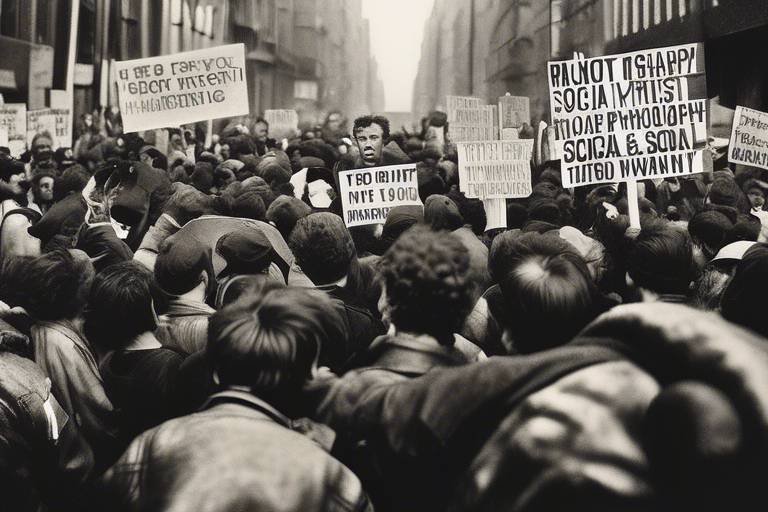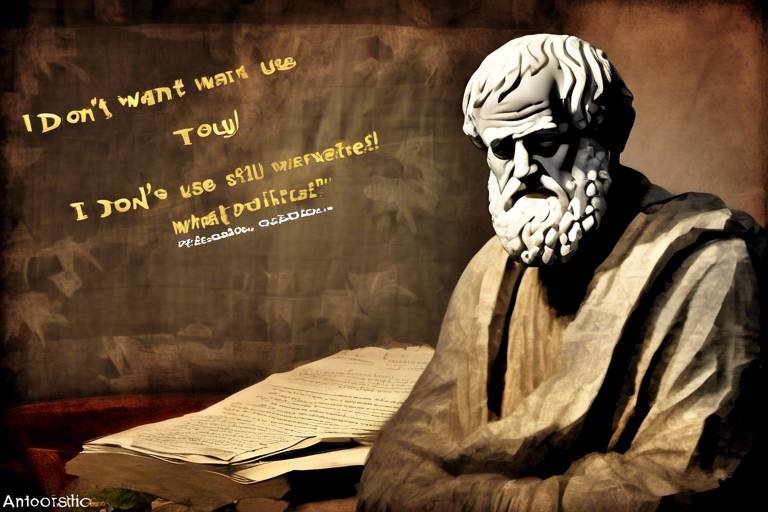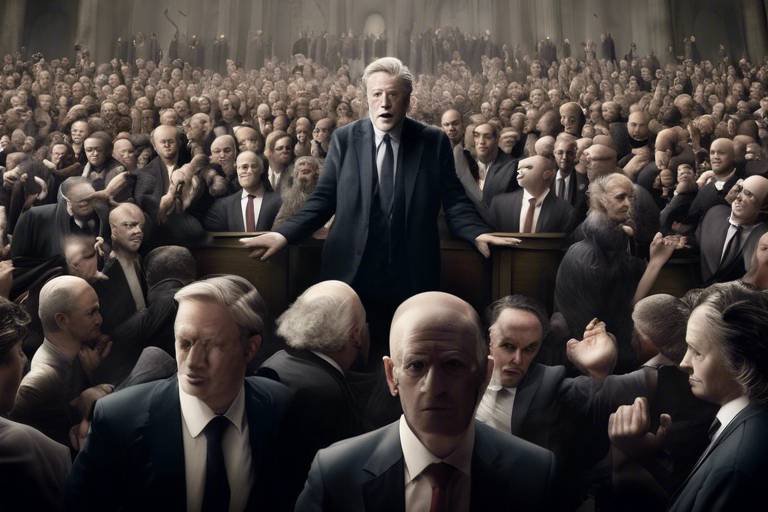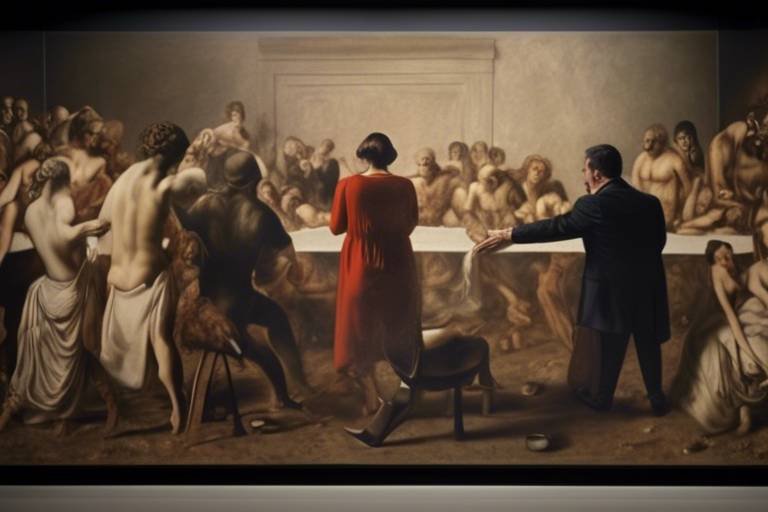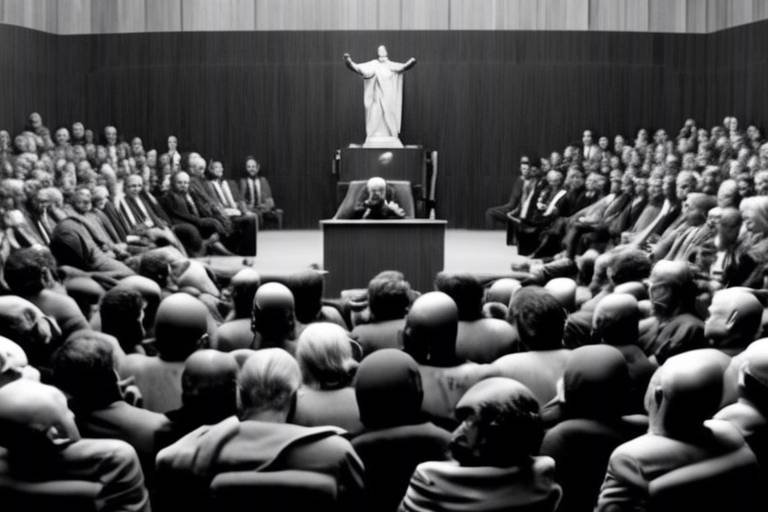The Power of Propaganda in Politics – A Philosophical Perspective
Propaganda is more than just a tool; it is a powerful force that shapes our political landscape and influences our beliefs and actions. In its essence, propaganda serves as a bridge between the political elite and the public, often obscuring the truth while simultaneously crafting narratives that resonate with the masses. Have you ever wondered how a simple message can sway public opinion or ignite a movement? This article dives deep into the intricate relationship between propaganda and politics, examining its philosophical implications and the profound effects it has on society, governance, and individual thought.
Understanding the roots of propaganda is essential to grasp its current impact. Historically, propaganda has evolved significantly, adapting to the technological and social changes of its time. From the early days of printed pamphlets to the age of radio and television, and now the digital realm, propaganda has taken many forms. Key events such as World War I and II saw governments utilize propaganda to bolster morale and demonize enemies. Figures like Edward Bernays, often deemed the father of public relations, played pivotal roles in shaping propaganda's methodology. His strategies showed how public perception could be manipulated, laying the groundwork for modern advertising and political campaigning.
So, how exactly does propaganda work? It employs various techniques designed to influence public perception and behavior. Emotional appeal is one of the most potent strategies; it taps into our feelings—fear, love, anger—making messages more relatable and compelling. Misinformation, on the other hand, distorts reality, creating a narrative that suits the propagandist's agenda. Repetition is another critical mechanism; by constantly hearing a particular message, people begin to accept it as truth, regardless of its validity. These strategies combine to create a powerful influence over how individuals and groups interpret political messages.
Media serves as a powerful vehicle for propaganda, acting as the conduit through which messages are disseminated. Traditional media, such as newspapers and television, have long been used to broadcast political messages to a broad audience. However, the rise of digital media has revolutionized this landscape. Social media platforms like Facebook, Twitter, and Instagram allow for rapid dissemination of information, often without the checks and balances that traditional media once provided. This shift not only amplifies political messaging but also shapes public opinion in unprecedented ways.
The rise of social media has transformed the way propaganda is spread. Unlike traditional media, which often relies on gatekeepers to filter information, social media empowers users to share content widely. This rapid spread can lead to viral campaigns that significantly influence political discourse and engagement. Targeted messaging allows political entities to hone in on specific demographics, tailoring their propaganda to resonate with particular groups. As a result, the impact of propaganda is not only broader but also more personalized, making it even more potent.
When comparing traditional media with new media, significant differences emerge in how propaganda is consumed and interpreted. Traditional media often presents information in a more structured and vetted manner, while new media can be chaotic and unfiltered. This disparity affects the effectiveness of political messaging. For instance, a carefully crafted political ad on television may reach millions, but a viral meme on social media can spread even faster, often bypassing the critical scrutiny that traditional media would impose.
As we delve into the philosophical implications of propaganda, we must confront its ethical considerations. Is the manipulation of truth justifiable in the pursuit of political ends? What does propaganda say about our collective morality and democratic values? These questions challenge us to reflect on the role propaganda plays in shaping our understanding of truth and the ethical responsibilities of those who wield it. The fine line between persuasion and deception becomes increasingly blurred, prompting a reevaluation of our societal norms.
The relationship between propaganda and public opinion is complex and often contentious. Political messaging can manipulate perceptions, swaying collective attitudes toward policies and leaders. By framing issues in specific ways, propaganda can create a narrative that influences public sentiment. For instance, consider how different media portrayals of the same event can lead to vastly different public reactions. This manipulation raises concerns about the integrity of democratic processes and the informed nature of voter decisions.
Understanding the psychological principles that underpin propaganda can illuminate why certain messages resonate more than others. Cognitive biases, such as confirmation bias, lead individuals to favor information that aligns with their preexisting beliefs. Additionally, the mere exposure effect suggests that repeated exposure to a message increases its likability. These psychological factors explain why some propaganda campaigns are more successful than others, influencing voter behavior and societal norms in profound ways.
As technology continues to evolve, so does propaganda. The future may see even more sophisticated methods of political messaging, with artificial intelligence and data analytics playing significant roles in crafting personalized propaganda. This evolution raises concerns about the potential consequences for democracy and civic engagement. Will we become more informed citizens, or will we be further manipulated by tailored messages that exploit our vulnerabilities? The answers to these questions will shape the political landscape for generations to come.
- What is propaganda? Propaganda is information, often biased or misleading, used to promote a political cause or point of view.
- How does propaganda influence public opinion? Through emotional appeal, repetition, and misinformation, propaganda shapes perceptions and sways collective attitudes.
- What role does social media play in propaganda? Social media allows for rapid dissemination and targeted messaging, making propaganda more personalized and potent.
- Are there ethical concerns regarding propaganda? Yes, propaganda raises questions about the manipulation of truth and the ethical responsibilities of those who use it.

The Historical Context of Propaganda
Understanding the roots of propaganda is essential to grasp its profound impact on politics and society. The term itself, derived from the Latin "propagare," meaning to spread or propagate, has a rich history that intertwines with the evolution of human communication. From ancient civilizations to modern democracies, propaganda has played a pivotal role in shaping public perception and guiding political narratives.
In ancient times, rulers utilized propaganda to consolidate power and influence public opinion. For instance, the Egyptians crafted grand monuments and inscriptions that glorified their pharaohs, presenting them as divine beings. Similarly, the Roman Empire used coins and public speeches to promote the image of emperors, ensuring loyalty and obedience among the populace. These early forms of propaganda laid the groundwork for more sophisticated techniques in later centuries.
The Middle Ages witnessed the rise of religious propaganda, where the Church wielded significant influence over the masses. The use of art, literature, and sermons served to disseminate religious ideologies and maintain control over societal norms. This period also saw the emergence of printed materials, which revolutionized the spread of ideas. The invention of the printing press in the 15th century marked a turning point, allowing for the rapid distribution of pamphlets and books that could challenge or reinforce prevailing beliefs.
As we moved into the 20th century, propaganda took on a new dimension, especially during times of conflict. World War I saw the birth of modern propaganda techniques, with governments employing sophisticated strategies to rally support for the war effort. The use of posters, films, and radio broadcasts became commonplace, aiming to evoke strong emotions and unite citizens under a common cause. Figures like Edward Bernays, often referred to as the "father of public relations," recognized the power of psychological manipulation and began to apply these principles to political campaigns and consumer behavior.
In the wake of World War II, propaganda evolved further with the advent of television and mass media. The Cold War era introduced a fierce competition between ideologies, where both the United States and the Soviet Union utilized propaganda to promote their respective political agendas. The portrayal of the "enemy" became a central theme, shaping public opinion and justifying military actions. During this time, propaganda was not merely about persuasion; it became a tool for survival in a world divided by ideological lines.
Fast forward to the 21st century, and we find ourselves in a digital age where propaganda can spread like wildfire. The internet and social media platforms have transformed traditional methods of communication, allowing for instantaneous dissemination of information. However, this also raises questions about the authenticity of the messages being shared. With the rise of fake news and misinformation, the historical context of propaganda serves as a reminder of its potential to manipulate truth and sway public opinion.
In summary, the historical context of propaganda reveals its evolution from ancient civilizations to the digital age. Each era has seen the adaptation of techniques to suit the prevailing modes of communication, shaping political landscapes and influencing societal norms. Understanding this history is crucial for navigating the complexities of modern propaganda, as it continues to be a powerful force in shaping our perceptions and beliefs.
- What is propaganda? Propaganda is a form of communication aimed at influencing the attitudes and opinions of a population, often through biased or misleading information.
- How has propaganda evolved over time? Propaganda has evolved from simple forms of communication in ancient times to sophisticated techniques involving mass media and digital platforms today.
- What role does media play in propaganda? Media serves as a powerful vehicle for propaganda, amplifying political messages and shaping public opinion across various platforms.
- Can propaganda be ethical? The ethical implications of propaganda are complex; while it can be used to promote positive social change, it can also manipulate truth and undermine democratic values.

The Mechanisms of Propaganda
Propaganda is not just a simple tool; it's a complex web of strategies designed to influence thought and behavior. At its core, propaganda operates through a series of mechanisms that tap into our emotions, biases, and beliefs. One of the most powerful techniques is the use of emotional appeal. By evoking strong feelings such as fear, hope, or anger, propagandists can bypass rational thought and drive people to action. For instance, consider a political ad that portrays a candidate as a savior during a crisis—this not only stirs emotions but also positions the candidate as a necessary choice.
Another crucial mechanism is misinformation. This involves presenting false or misleading information to shape public perception. In today’s digital age, misinformation can spread like wildfire, often outpacing corrections. A classic example is the use of misleading statistics or cherry-picked facts that support a particular narrative while ignoring the broader context. This tactic can create a distorted view of reality, leaving the public confused and susceptible to manipulation.
Additionally, the technique of repetition plays a significant role in propaganda. When a message is repeated frequently, it becomes more familiar, and familiarity breeds acceptance. Think about how catchy slogans or phrases in political campaigns can become ingrained in our minds. They may not always be factual, but the constant exposure can lead voters to believe them over time. This is why slogans like “Make America Great Again” or “Yes We Can” resonate so deeply—they are repeated until they become part of the collective consciousness.
To better understand how these mechanisms work together, let's look at a simple table that summarizes the key strategies of propaganda:
| Mechanism | Description | Example |
|---|---|---|
| Emotional Appeal | Using feelings to persuade the audience. | Ads that evoke fear or hope. |
| Misinformation | Disseminating false information to mislead. | Cherry-picking statistics to support a claim. |
| Repetition | Reiterating messages to enhance familiarity. | Political slogans used in campaigns. |
Moreover, the effectiveness of these mechanisms is amplified through the role of media. Whether it’s through traditional outlets like newspapers and television or modern platforms like social media, the medium through which propaganda is delivered can significantly impact its reach and reception. Each medium has its unique strengths and weaknesses, influencing how messages are crafted and perceived. For instance, traditional media may lend an air of credibility due to established reputations, while social media allows for rapid dissemination and targeted messaging.
In conclusion, the mechanisms of propaganda are intricately designed to manipulate public perception and behavior. By understanding these strategies—emotional appeal, misinformation, and repetition—we can better equip ourselves to recognize and resist manipulation in our political landscape. The next time you encounter a political message, ask yourself: What emotions is it trying to evoke? Is the information accurate? How often have I heard this message before? These questions can help you navigate the murky waters of political communication.
- What is propaganda? Propaganda is a form of communication aimed at influencing the attitude of a community toward some cause or position.
- How does emotional appeal work in propaganda? Emotional appeal works by tapping into the audience's feelings, making them more likely to accept the message without critical analysis.
- Why is misinformation dangerous? Misinformation can lead to distorted perceptions of reality, making it difficult for the public to make informed decisions.
- How can I recognize propaganda? Look for emotional language, check the sources of information, and consider how often you encounter the same message.
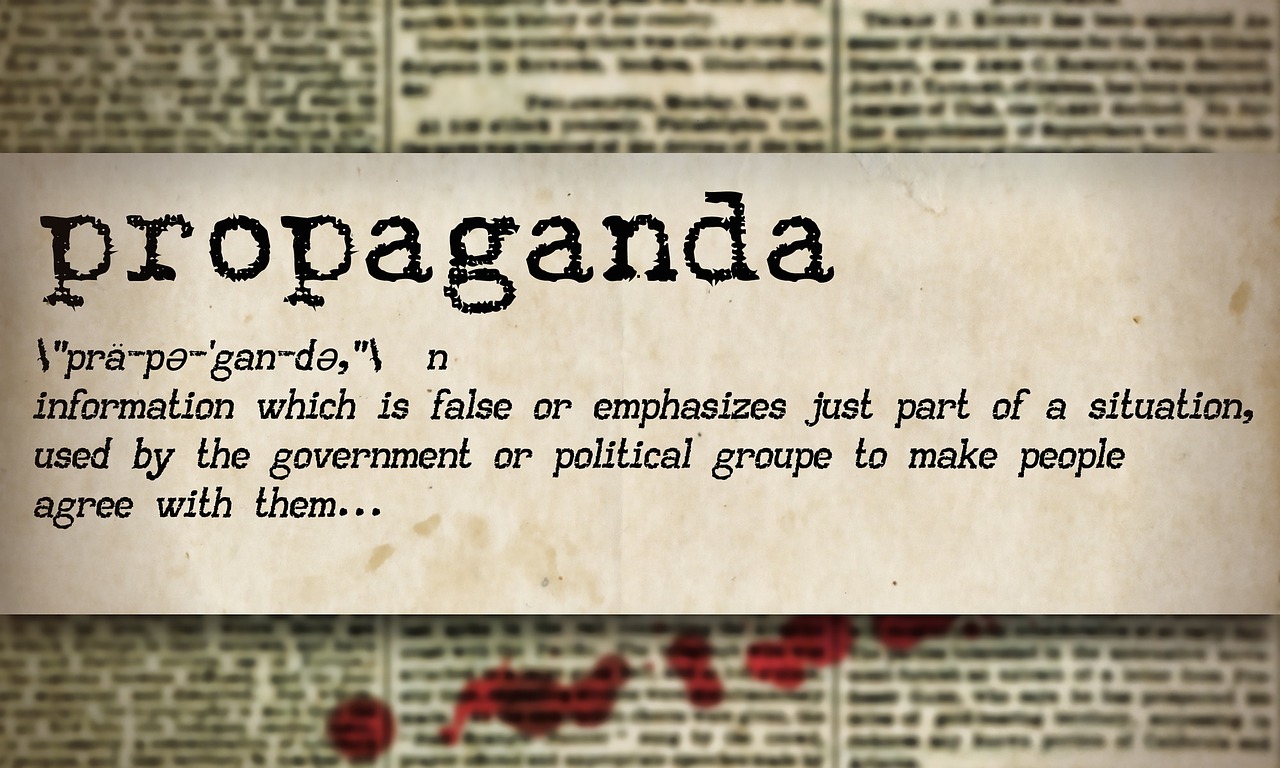
The media plays an indispensable role in the realm of propaganda, acting as both a conduit and a catalyst for political messaging. In today’s fast-paced digital age, the way information is disseminated has evolved drastically. Traditional media, such as newspapers and television, once held the reins of public discourse, but the rise of digital media has transformed the landscape, enabling messages to spread like wildfire. It’s fascinating to consider how a single tweet or viral video can shape public opinion almost instantaneously. But what does this mean for the effectiveness of propaganda?
To understand the media's influence, we must first acknowledge the different forms of media and their unique characteristics. Traditional media tends to provide a more structured narrative, often adhering to journalistic standards and ethics, while new media platforms—like social media—offer a more chaotic and unregulated environment. This shift has led to a greater emphasis on sensationalism and emotional appeal in political messaging. For instance, consider how a dramatic headline can evoke strong emotions, compelling readers to share the content without fully understanding the underlying facts. This phenomenon raises the question: are we consuming news or merely participating in a cycle of outrage?
Moreover, the role of media in propaganda is not just about the content itself, but also about the audience's perception and engagement. Different demographics consume media in varied ways, influenced by factors such as age, education, and cultural background. For example, younger audiences may gravitate towards platforms like TikTok or Instagram, where bite-sized information reigns supreme, while older generations might prefer the depth of articles in established newspapers. This divergence in consumption habits means that propaganda must be tailored to fit the medium and the audience, creating a more personalized experience that can effectively sway opinions.
Additionally, the concept of echo chambers comes into play. Social media algorithms are designed to show users content that aligns with their existing beliefs, creating a feedback loop that reinforces their views. This can lead to a dangerous scenario where opposing perspectives are drowned out, leaving individuals with a skewed understanding of reality. The media, therefore, not only disseminates propaganda but also shapes the very framework through which we interpret information. It’s a bit like being trapped in a funhouse mirror—what you see is distorted, yet it feels undeniably real.
In summary, the media's role in propaganda is multifaceted, encompassing the dissemination of information, audience engagement, and the shaping of public perception. As we navigate this complex landscape, it’s crucial to remain vigilant and critically assess the information we consume. Are we being informed, or are we being manipulated? The answers may lie in our ability to question the narratives presented to us and seek out diverse viewpoints.
- What is propaganda? Propaganda is a form of communication aimed at influencing the attitudes and opinions of people, often through biased or misleading information.
- How does media influence propaganda? Media serves as a platform for disseminating propaganda, shaping how messages are received and interpreted by the public.
- What are echo chambers? Echo chambers are environments where a person only encounters information or opinions that reflect and reinforce their own, limiting exposure to differing viewpoints.
- Can propaganda be positive? While often viewed negatively, propaganda can also be used for positive purposes, such as public health campaigns or social justice movements.

Social Media's Impact
In today's digital age, social media has emerged as a dominant force in the realm of propaganda, transforming the way political messages are crafted and disseminated. Gone are the days when a political campaign relied solely on traditional media outlets like television and newspapers. Now, platforms such as Facebook, Twitter, and Instagram serve as powerful tools for shaping public opinion, often with unprecedented speed and reach. But how exactly does social media amplify propaganda?
One of the most significant impacts of social media is its ability to create echo chambers. These are environments where individuals are exposed primarily to information that reinforces their existing beliefs. For instance, if someone follows a particular political ideology, their feed may be flooded with content that aligns with that perspective, while opposing views are filtered out. This phenomenon not only strengthens pre-existing biases but also creates a sense of community among like-minded individuals, making them more susceptible to propaganda.
Moreover, the viral nature of social media means that propaganda can spread like wildfire. A cleverly crafted meme or a sensational post can garner thousands, if not millions, of shares within hours. This rapid dissemination of information can distort reality, as users often share content without verifying its accuracy. The ease with which misinformation can spread raises ethical questions about the responsibility of both platforms and users in curbing the flow of false narratives.
Another crucial aspect of social media's impact on propaganda is the use of targeted advertising. Political campaigns can now tailor their messages to specific demographics based on user data, ensuring that their propaganda reaches the most receptive audiences. This level of precision was unimaginable in the past and raises concerns about manipulation. For example, a campaign might run different ads in various regions, highlighting issues that resonate with local voters while downplaying others. This strategy not only maximizes engagement but also muddies the waters of informed decision-making.
Furthermore, the interactivity of social media allows for a two-way communication channel between political figures and the public. Unlike traditional media, where information flows one way, social media encourages dialogue. Politicians can respond to criticism, engage with supporters, and even mobilize followers for rallies or events. However, this interactivity can also be a double-edged sword. While it can enhance democratic engagement, it can also lead to the spread of propaganda, as users may feel compelled to share sensationalized content to maintain their social standing within their networks.
In summary, the impact of social media on propaganda is profound and multifaceted. It has revolutionized the way political messages are crafted, shared, and consumed, creating both opportunities and challenges for democracy. As we navigate this complex landscape, it is crucial to remain vigilant and discerning consumers of information, questioning the motives behind the messages we encounter online.
- How does social media contribute to the spread of misinformation?
Social media allows for the rapid sharing of content, often without verification, which can lead to the widespread dissemination of false information. - What are echo chambers?
Echo chambers are environments where individuals are only exposed to information that reinforces their existing beliefs, making them more susceptible to propaganda. - How can users combat propaganda on social media?
Users can combat propaganda by verifying sources, seeking diverse viewpoints, and being critical of the information they share.

Traditional Media vs. New Media
The landscape of media has undergone a seismic shift in recent years, fundamentally altering how propaganda is disseminated and consumed. Traditional media—think newspapers, television, and radio—once held a monopoly on the flow of information. These mediums operated under a structured hierarchy, where information was filtered through editorial processes before reaching the public. This form of media was generally seen as a trusted source, often providing in-depth analysis and context. However, the rise of new media, characterized by platforms like social media, blogs, and podcasts, has disrupted this paradigm. Now, anyone with internet access can share their thoughts, opinions, or propaganda, often without any checks or balances.
One of the most significant differences between traditional and new media lies in their speed of dissemination. Traditional media often requires time for research, editing, and production, which can delay the release of information. In contrast, new media allows for instantaneous sharing of content, making it possible for propaganda to spread like wildfire. For instance, a tweet can go viral within minutes, reaching millions and shaping public opinion almost in real-time. This immediacy can be both a blessing and a curse, as it allows for rapid mobilization of public sentiment but also opens the door for misinformation to spread equally fast.
Another crucial distinction is the interactivity that new media offers. Traditional media typically presents information in a one-way format, where the audience consumes content passively. New media, however, encourages engagement; users can comment, share, and even create their own content in response. This interactivity can amplify propaganda, as users often share content that resonates with their beliefs, creating echo chambers that reinforce existing biases. In a way, new media acts as a double-edged sword: while it democratizes information sharing, it also enables the rapid spread of polarizing content.
To illustrate these differences more clearly, consider the following table:
| Aspect | Traditional Media | New Media |
|---|---|---|
| Speed of Dissemination | Slower; requires editorial processes | Instantaneous; can go viral quickly |
| Interactivity | One-way communication | Two-way communication; audience engagement |
| Content Creation | Professional journalists and editors | Anyone with internet access |
| Trustworthiness | Generally trusted sources | Varies widely; potential for misinformation |
In summary, the evolution from traditional media to new media has transformed the way propaganda operates. While traditional media provided a sense of authority and reliability, new media has democratized the conversation, allowing for a diverse range of voices, but also creating challenges in verifying the truth. As we navigate this complex media landscape, it's crucial to remain vigilant and critical of the information we consume, regardless of the medium.
- What is propaganda?
Propaganda is information, often biased or misleading, used to promote a particular political cause or point of view. - How has social media changed propaganda?
Social media allows for rapid dissemination and interaction, making it easier for propaganda to spread and resonate with audiences. - Why is it important to differentiate between traditional and new media?
Understanding the differences helps us critically evaluate the information we consume and recognize potential biases.
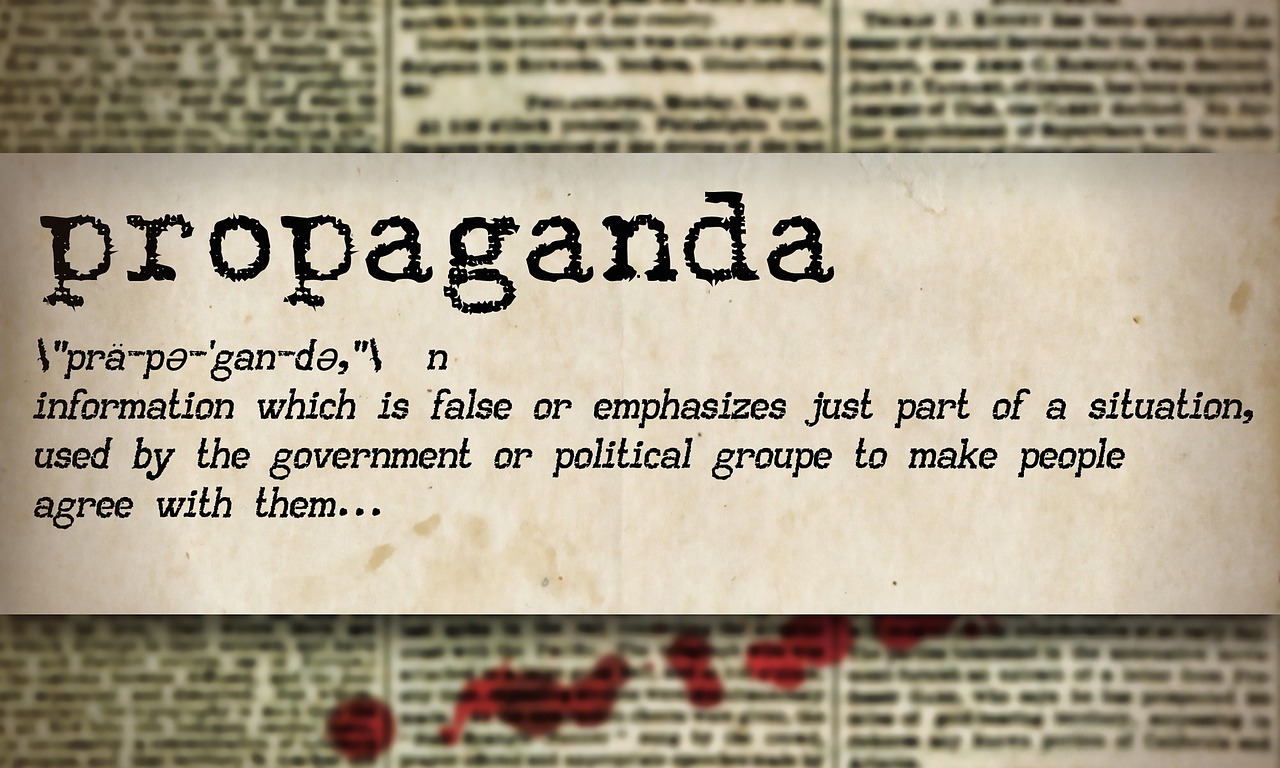
Philosophical Implications of Propaganda
When we dive into the , we find ourselves navigating a complex landscape where truth, morality, and democratic values collide. Propaganda is not merely a tool for persuasion; it is a powerful mechanism that shapes our understanding of reality. At its core, propaganda raises fundamental questions about what it means to be informed and how our beliefs are constructed. Are we merely passive recipients of information, or do we actively engage with the content presented to us?
One of the most profound implications of propaganda is its ability to redefine truth. In a world where information is abundant, the line between fact and fiction can become blurred. For instance, consider the role of selective reporting, where certain facts are emphasized while others are downplayed. This practice can create a skewed perception of reality, leading individuals to form opinions based on incomplete information. As a result, the ethical responsibility of those disseminating information comes into question. Shouldn't there be a moral obligation to present a balanced view?
Moreover, propaganda often exploits emotional triggers to sway public opinion. This manipulation raises ethical concerns about the morality of influencing thoughts and behaviors. When emotional appeals are used to bypass rational thought, we must ask ourselves whether such tactics are justifiable. Is it acceptable to evoke fear or anger to achieve a political end? This dilemma leads us to ponder the very essence of democracy. A healthy democracy thrives on informed decision-making, yet propaganda can undermine this by fostering division and misinformation.
In examining the philosophical implications of propaganda, we also encounter the concept of autonomy. As individuals, we pride ourselves on our ability to think critically and make informed choices. However, the pervasive nature of propaganda can erode this autonomy, leading to a society where collective thought is shaped more by external influences than by personal reflection. This raises an essential question: Are we truly free thinkers, or are we merely products of the propaganda we consume?
To further illustrate these points, consider the following table that outlines the key philosophical concerns associated with propaganda:
| Concern | Description |
|---|---|
| Truth | The challenge of discerning fact from fiction in a sea of information. |
| Morality | The ethical implications of manipulating emotions for political gain. |
| Democracy | The impact of propaganda on informed decision-making and public discourse. |
| Autonomy | The erosion of personal agency in the face of persuasive messaging. |
As we reflect on these philosophical implications, it becomes clear that propaganda is not just a political tool; it is a force that shapes our very understanding of the world. It challenges us to be vigilant, to question the sources of our information, and to strive for a deeper understanding of the narratives that surround us. In a society increasingly influenced by propaganda, fostering critical thinking and open dialogue becomes imperative. Only then can we hope to navigate the murky waters of political messaging and emerge as informed, autonomous individuals.
- What is propaganda? Propaganda is information, often biased or misleading, used to promote a particular political cause or point of view.
- How does propaganda affect public opinion? Propaganda can significantly shape public opinion by manipulating emotions, presenting selective facts, and creating narratives that resonate with the audience.
- Are there ethical concerns regarding propaganda? Yes, ethical concerns include the potential for misinformation, emotional manipulation, and the erosion of democratic values.
- What role does social media play in propaganda? Social media amplifies the reach of propaganda, allowing for rapid dissemination of messages and targeted engagement with specific audiences.

Propaganda and Public Opinion
Propaganda is not just a tool of persuasion; it is a powerful force that shapes public opinion in ways that can be both subtle and overt. When we think about how political messages are crafted and disseminated, it becomes clear that propaganda plays a crucial role in influencing how individuals perceive their leaders, policies, and the world around them. But how does this happen? Let's dive deeper into the intricate relationship between propaganda and public opinion.
At its core, propaganda aims to manipulate the way we think and feel about certain issues. It does this by leveraging emotional appeals, selective information, and sometimes, outright misinformation. For instance, during election seasons, we often see candidates using catchy slogans or emotionally charged advertisements to evoke feelings of hope or fear. These messages are designed not only to inform but to elicit a visceral response from the audience, making them more likely to align with the propagandist's viewpoint.
One of the most fascinating aspects of propaganda is its ability to create a sense of group identity. When people are exposed to similar messages repeatedly, they begin to adopt those views as part of their collective identity. This phenomenon is particularly evident in political rallies or social media campaigns where a shared narrative is promoted. As individuals come together under a common banner, their opinions are often swayed by the prevailing sentiments of the group, rather than their independent thoughts.
Moreover, the relationship between propaganda and public opinion is cyclical. Propaganda shapes public opinion, which in turn influences the creation of more propaganda. This cycle can lead to a situation where misinformation proliferates, and the truth becomes obscured. For example, if a particular narrative gains traction, it may prompt media outlets to cover it more extensively, further embedding that viewpoint in the public consciousness. This is where the role of media literacy becomes crucial; individuals must be equipped to critically analyze the information they consume to break this cycle.
To illustrate this point, consider the following table which summarizes how propaganda influences public opinion:
| Propaganda Technique | Effect on Public Opinion |
|---|---|
| Emotional Appeals | Evokes strong feelings that can override logical reasoning. |
| Misinformation | Creates confusion and can lead to misguided beliefs. |
| Repetition | Reinforces ideas until they are accepted as truth. |
| Group Identity | Encourages conformity and alignment with the majority view. |
As we navigate this complex landscape, it’s essential to recognize that the impact of propaganda on public opinion can be profound. It can lead to significant shifts in political landscapes, as seen in various historical contexts. Think about how certain movements gained momentum through the effective use of propaganda—like the civil rights movement or more recently, climate change activism. These campaigns have harnessed the power of public opinion to drive social change, highlighting the dual-edged nature of propaganda.
In conclusion, understanding the relationship between propaganda and public opinion is vital for anyone who wishes to engage critically with political discourse. As we become more aware of how our opinions can be shaped, we can make more informed choices and contribute positively to the democratic process. After all, in a world saturated with information, discernment is our best ally.
- What is propaganda? Propaganda is a form of communication aimed at influencing the attitude of a community toward some cause or position.
- How does propaganda affect public opinion? It shapes perceptions by using emotional appeals, misinformation, and repetition to create a desired narrative.
- Can propaganda be beneficial? While often seen negatively, propaganda can also mobilize communities for social change and raise awareness about critical issues.
- What role does media play in propaganda? Media acts as a vehicle for disseminating propaganda, amplifying political messages through various channels.

The Psychology Behind Propaganda
When we delve into the psychology behind propaganda, we uncover a fascinating interplay between human cognition and emotional response. Propaganda is not just about delivering information; it's about crafting messages that resonate deeply with our beliefs, fears, and desires. Have you ever wondered why certain slogans stick in your mind while others fade away? This is no accident. It’s a carefully orchestrated dance of psychology and persuasion.
At its core, propaganda leverages several psychological principles to influence public opinion and behavior. One of the most powerful tools is emotional appeal. By tapping into emotions such as fear, joy, or anger, propagandists can create a visceral reaction that prompts immediate action or belief. For instance, during election campaigns, candidates often use emotionally charged language to evoke feelings of hope or despair, making their messages more relatable and impactful.
Another critical aspect is the concept of cognitive dissonance. This psychological phenomenon occurs when individuals experience discomfort due to conflicting beliefs or behaviors. Propaganda often exploits this by presenting information that aligns with existing beliefs while discrediting opposing views, thus easing the discomfort and reinforcing the desired narrative. Imagine a voter who believes in a particular policy. When confronted with information that challenges this belief, they may reject the new data to maintain their original stance, making them more susceptible to propaganda that supports their viewpoint.
Moreover, the principle of repetition plays a significant role in how propaganda takes root in our minds. The more we hear a message, the more likely we are to accept it as truth. This is known as the illusion of truth effect. For example, political slogans repeated across various media platforms can become ingrained in public consciousness, shaping perceptions without individuals even realizing it. It’s like hearing a catchy tune on the radio that you can’t shake off—before long, you find yourself humming it without thinking.
Additionally, social identity theory suggests that people are influenced by the groups they belong to. Propaganda often seeks to create an "us vs. them" mentality, encouraging individuals to align themselves with a specific group. This can lead to a strong sense of belonging, but it also fosters division. When propaganda frames an issue as a battle between groups, individuals are more likely to adopt extreme positions and reject compromise, further entrenching societal divides.
In essence, the psychology behind propaganda is a complex web of emotional manipulation, cognitive biases, and social dynamics. Understanding these elements is crucial for recognizing how political messaging can shape our perceptions and behaviors. As we navigate a world saturated with information, being aware of these psychological tactics can empower us to critically evaluate the messages we encounter, fostering a more informed and engaged citizenry.
- What is the main purpose of propaganda? Propaganda aims to influence public opinion and behavior by presenting information in a biased or misleading way to promote a particular agenda.
- How does propaganda affect democracy? Propaganda can undermine democratic values by manipulating perceptions, creating division, and reducing the public's ability to make informed decisions.
- Can propaganda be used for positive purposes? Yes, propaganda can be used to promote social good, such as public health campaigns, but it is often viewed skeptically due to its potential for misuse.
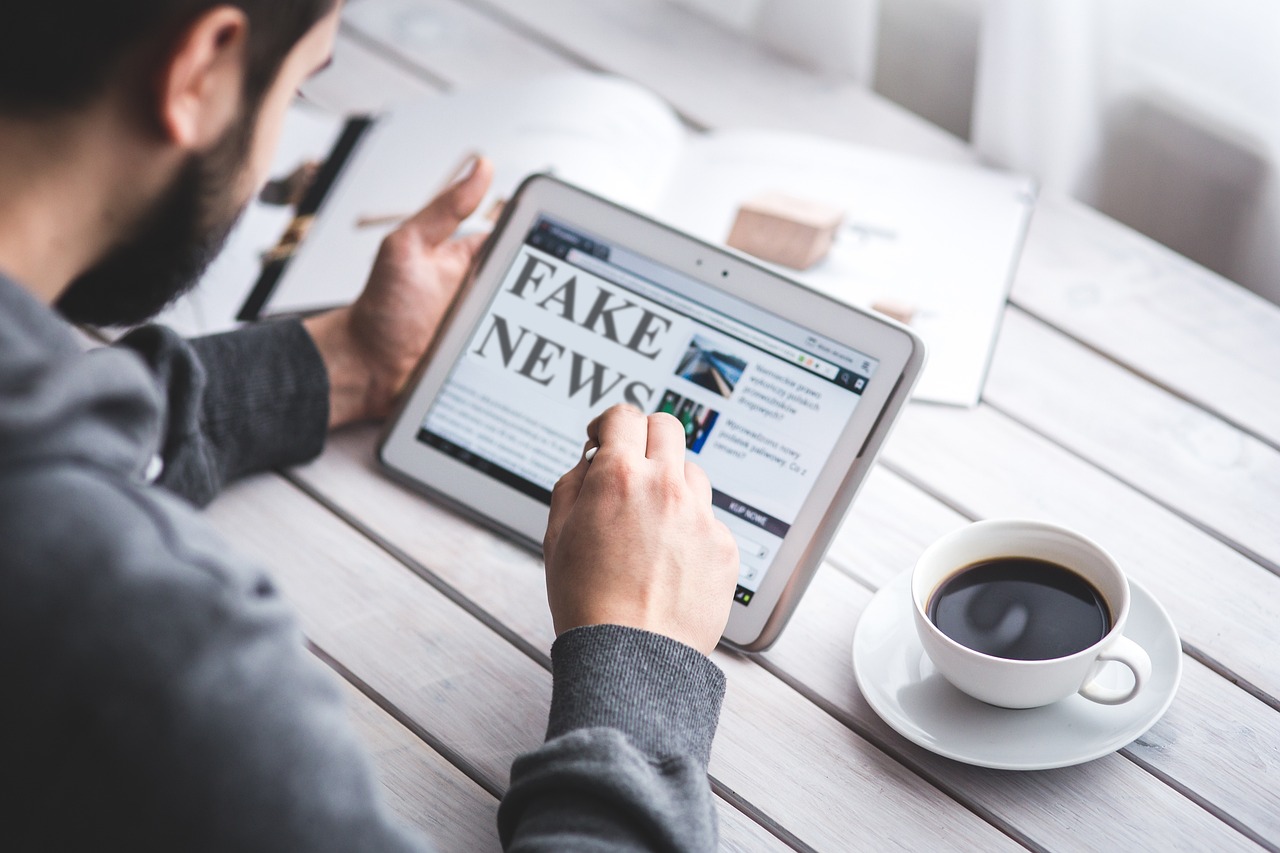
The Future of Propaganda in Politics
As we gaze into the crystal ball of political communication, it becomes increasingly clear that the future of propaganda is not just a continuation of the past but a transformation driven by technology and societal change. The digital age has birthed a new era of propaganda that is more sophisticated, targeted, and pervasive than ever before. With the rise of artificial intelligence, data analytics, and personalized content delivery, the landscape of political messaging is evolving rapidly.
Imagine a world where political campaigns can tailor messages to individual voters based on their online behavior, interests, and even emotional states. This is not a distant fantasy; it is already happening. Political operatives use advanced algorithms to sift through vast amounts of data, identifying the most effective ways to influence specific demographics. This level of precision in messaging raises profound ethical questions. Are we still engaging in a democratic discourse, or are we merely being manipulated by unseen forces?
Moreover, the role of social media in shaping political narratives cannot be overstated. With platforms like Facebook, Twitter, and TikTok, messages can go viral in a matter of minutes, reaching millions without the traditional gatekeeping of mainstream media. This democratization of information dissemination can be both a blessing and a curse. On one hand, it empowers grassroots movements and allows marginalized voices to be heard; on the other, it can lead to the rapid spread of misinformation and divisive propaganda.
As we look ahead, we must also consider the implications of deepfakes and other advanced technologies that can create hyper-realistic content. Imagine a political ad featuring a candidate making statements they never actually said, or a video that appears to show a leader in a compromising situation. The potential for misuse is staggering, and it poses a significant threat to the integrity of political discourse. How do we combat this when the line between reality and fabrication becomes increasingly blurred?
In addition, the rise of echo chambers—environments where individuals are exposed only to information that reinforces their existing beliefs—has profound implications for the future of propaganda. As people increasingly curate their news feeds to align with their views, propaganda can thrive in these silos, further polarizing society. The challenge for democracy will be to foster environments that encourage open dialogue and critical thinking, rather than retreating into our comfort zones.
In conclusion, the future of propaganda in politics is a double-edged sword. While technology offers unprecedented opportunities for engagement and participation, it also presents new challenges that threaten the very fabric of democratic society. As citizens, we must remain vigilant, questioning the information we consume and advocating for transparency and accountability in political messaging. Only then can we hope to navigate the complex landscape of the future with integrity and purpose.
- What is propaganda? Propaganda is a form of communication aimed at influencing the attitudes and perceptions of a population toward a specific cause or position.
- How has technology changed propaganda? Technology has made propaganda more targeted and widespread, allowing for personalized messaging based on user data and behavior.
- What are the ethical concerns surrounding propaganda? The primary concerns include manipulation of truth, the potential for misinformation, and the erosion of democratic values.
- How can individuals protect themselves from propaganda? Critical thinking, media literacy, and seeking diverse sources of information can help individuals recognize and resist propaganda.
Frequently Asked Questions
- What is propaganda in the context of politics?
Propaganda in politics refers to the strategic use of information, ideas, or rumors to influence public opinion and behavior. It can take various forms, including advertisements, speeches, and social media posts, aiming to sway voters or manipulate perceptions about policies and leaders.
- How has propaganda evolved throughout history?
Propaganda has a rich history, dating back to ancient civilizations. Over time, it has adapted to technological advancements, from printed pamphlets to radio broadcasts, and now digital platforms. Key historical events, such as wars and revolutions, have significantly shaped its development and use in political contexts.
- What techniques are commonly used in propaganda?
Common techniques include emotional appeals, misinformation, repetition, and the use of persuasive language. These strategies aim to resonate with audiences on a personal level, creating a sense of urgency or fear that can influence decision-making and public perception.
- What role does media play in the dissemination of propaganda?
Media acts as a powerful conduit for propaganda, amplifying political messages to a wide audience. Traditional media, like television and newspapers, and digital platforms, such as social media, each have unique ways of shaping public opinion and facilitating the spread of political narratives.
- How has social media changed the landscape of propaganda?
Social media has revolutionized how propaganda is shared and consumed. It enables rapid dissemination of information and allows for targeted messaging, which can significantly impact political discourse and increase engagement among users. This immediacy can lead to both positive and negative consequences for public opinion.
- What are the ethical implications of using propaganda?
The ethical considerations of propaganda revolve around its potential to distort truth and manipulate moral values. It raises questions about the responsibility of those who create and disseminate propaganda, especially in democratic societies where informed citizenry is crucial for effective governance.
- How can propaganda influence public opinion?
Propaganda can shape public opinion by framing issues in a particular light, emphasizing certain narratives while downplaying others. This manipulation can sway collective attitudes toward policies, candidates, and broader societal issues, ultimately affecting political outcomes and governance.
- What psychological principles underlie propaganda?
Psychological principles such as cognitive biases, social proof, and emotional triggers play a significant role in how propaganda resonates with audiences. Understanding these principles helps explain why certain messages are more effective in influencing voter behavior and societal norms.
- What does the future hold for propaganda in politics?
As technology continues to evolve, the methods and effectiveness of propaganda will likely change as well. Future trends may include even more sophisticated targeting techniques and the integration of artificial intelligence, raising new challenges for democracy and civic engagement.





